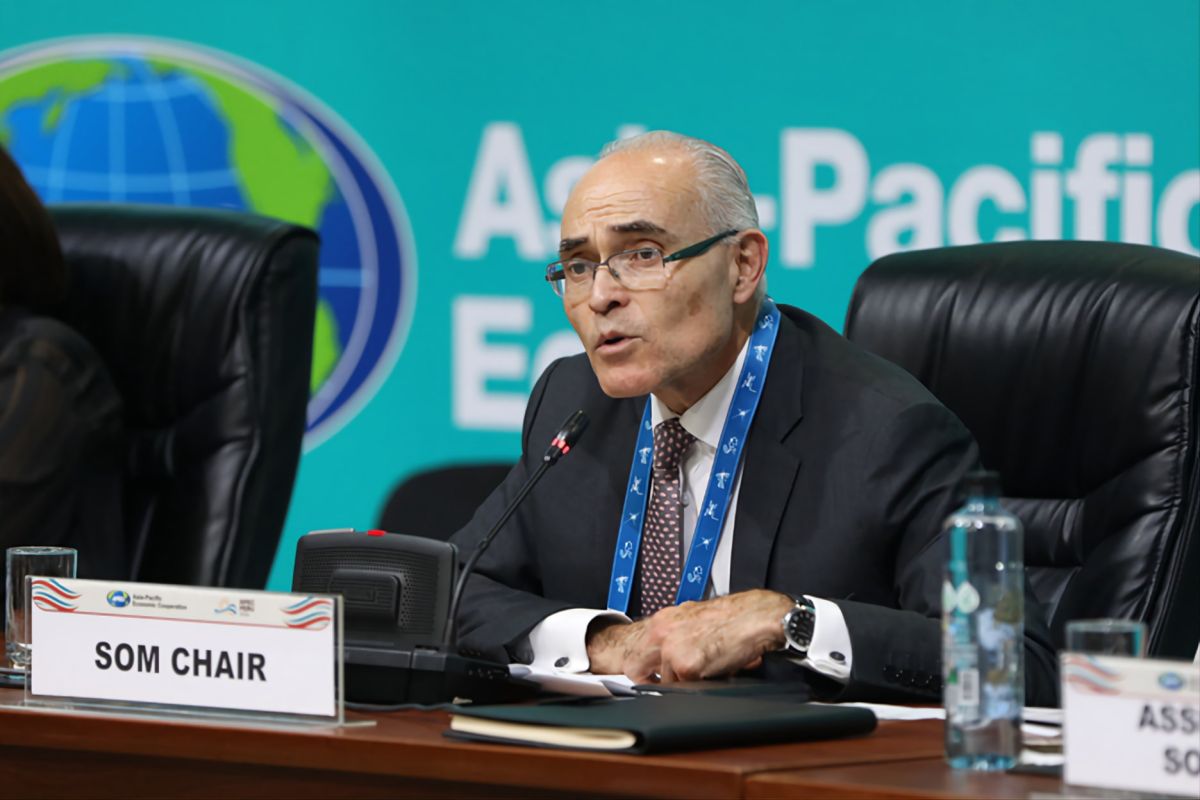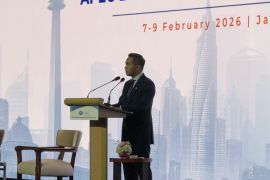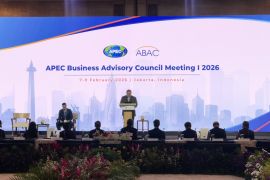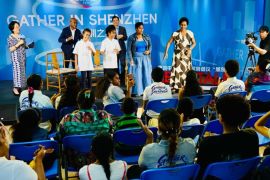“We are committed to fostering an environment conducive to inclusive and sustainable growth for all member economies,” the 2024 chair of APEC Senior Officials’ Meeting, Ambassador Carlos Vasquez, said, as per a release issued by the APEC Senior Officials' Meeting here on Saturday.
Ambassador Vasquez reiterated that the thematic priorities set by Peru for this year reflect member economies’ dedication to addressing the critical issues facing the APEC region.
These include promoting trade and investment for inclusive growth, harnessing innovation and digitalization for transitioning to the formal economy, as well as advancing sustainable development and resilient growth.
“Each priority responds to critical issues of mutual interest for our economies in the realm of trade and investment,” Vasquez said.
“We also aim to revitalize discussions around a new view for the Free Trade Area of the Asia-Pacific (FTAAP) and foster greater collaboration to address trade-related challenges,” he added.
Nearly 1,500 delegates participated in several meetings in Lima over the past two weeks, deliberating and sharing best practices on how to achieve quality growth in the Asia-Pacific, understanding the urgent need to address current global challenges, as well as future-proofing the region.
At the First APEC Senior Officials’ Meeting held on March 7 and 8, 2024, senior officials discussed the latest developments in the World Trade Organization (WTO), including the outcomes of the recently concluded 13th WTO Ministerial Conference.
Senior officials expressed support for Peru’s 2024 priorities, including accelerating APEC actions for addressing their domestic informal economy and reviewing key areas and measures that could be integrated into a road map for transitioning to the formal and global economy.
According to the APEC Policy Support Unit’s recent policy brief, the size of the informal economy in the APEC region was estimated to be 13.4 percent of the gross domestic product (GDP) in 2020, with the median earnings of informal workers in several APEC economies around 40 to 67 percent lower compared to formal workers.
“Informality occurs around the world, and as part of our efforts in advancing inclusive growth, Peru, for the first time, has brought this topic to the table,” executive director of the APEC Secretariat, Rebecca Sta Maria, said.
“Earlier this week, we heard from experts and member economies about their views on how APEC can advance formalization, including by promoting an innovative mix of policies and strategies to develop skills, improving trust in institutions, fostering enabling business environments, increasing access to capital, markets, and technology, as well as boosting social protection,” she added.
On the occasion of International Women’s Day, Ambassador Vasquez highlighted the continuous work within APEC, not only in recognizing the pivotal role of women in the economy, but also in ensuring their full economic empowerment.
“The full potential of women’s contribution to the Asia-Pacific economy remains untapped. In this sense, women’s economic empowerment and the greater inclusion of women in the digital economy are high on APEC’s agenda,” he said.
Vasquez urged member economies to keep advancing the La Serena Roadmap for Women and Inclusive Growth, driving policy actions across APEC, fostering inclusive economic growth, and promoting women’s active participation in the economy.
“Let us remember that our collective efforts are aimed at improving the lives of people in our region,” he remarked.
“It is only through collaboration, innovation, and a shared vision for the future that we can overcome the challenges we face and seize the opportunities that lie ahead," Vasquez added.
Senior officials will meet again in May this year in Arequipa to take stock of the progress of work. Peru will also host the APEC Ministers Responsible for Trade Meeting (MRT) and the first joint MRT and Ministers for Women’s Ministerial Meeting in May.
Related news: APEC to redouble efforts to facilitate export by MSMEs
Related news: APEC drives quality economic growth agenda
Reporter: Yuni Arisandy Sinaga
Editor: Rahmad Nasution
Copyright © ANTARA 2024












